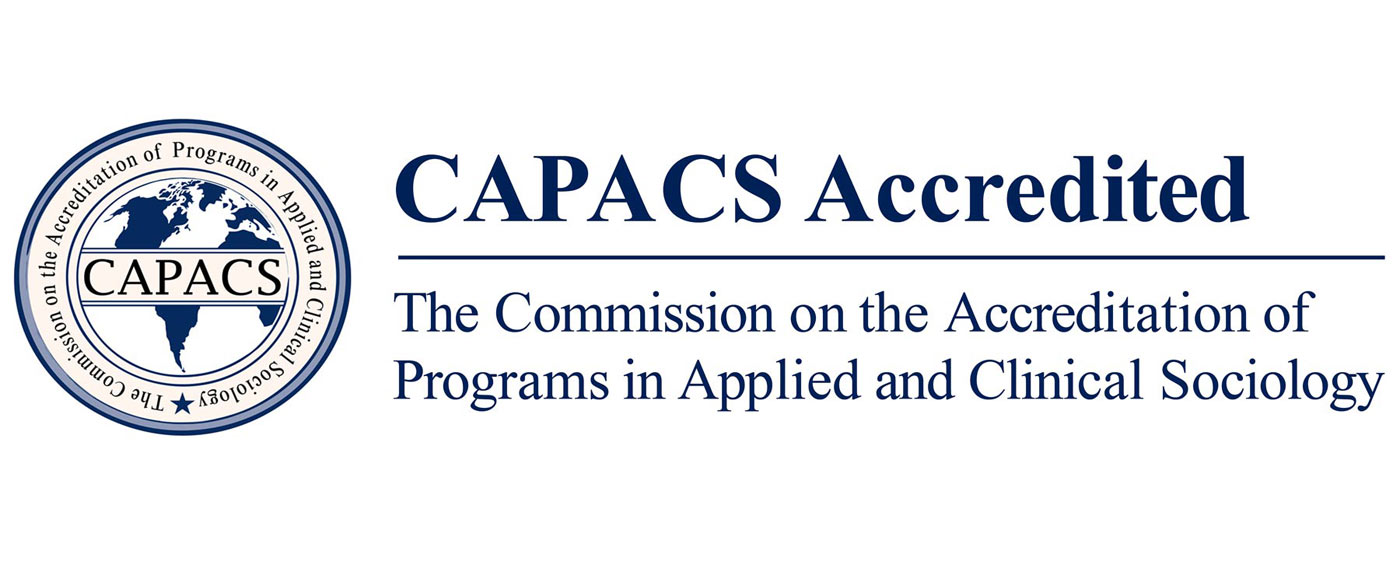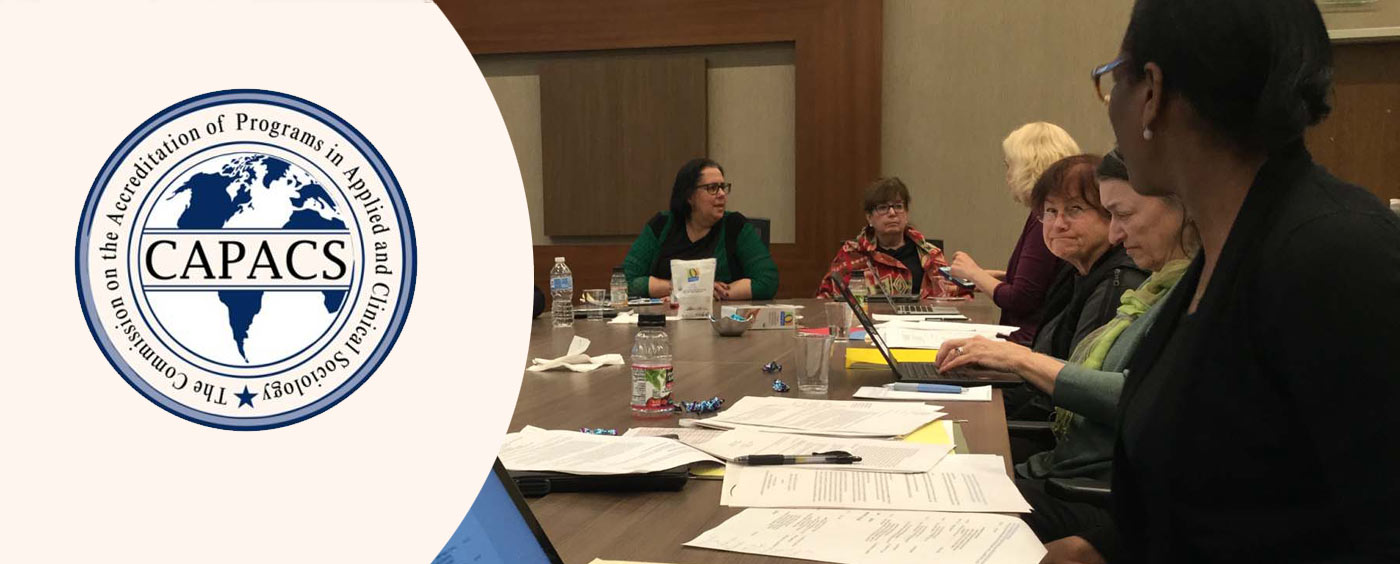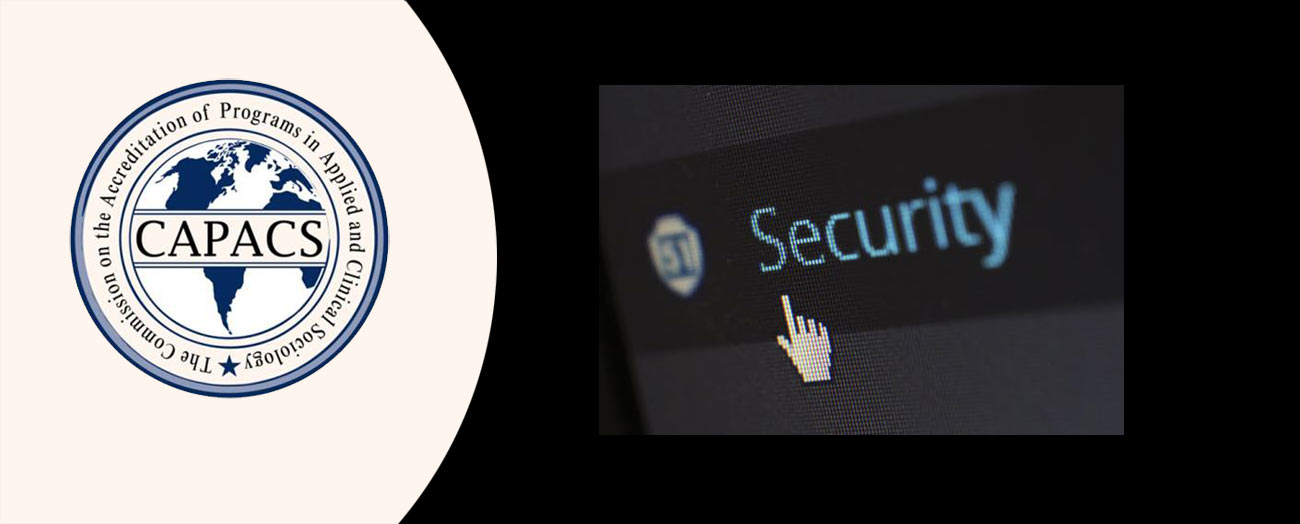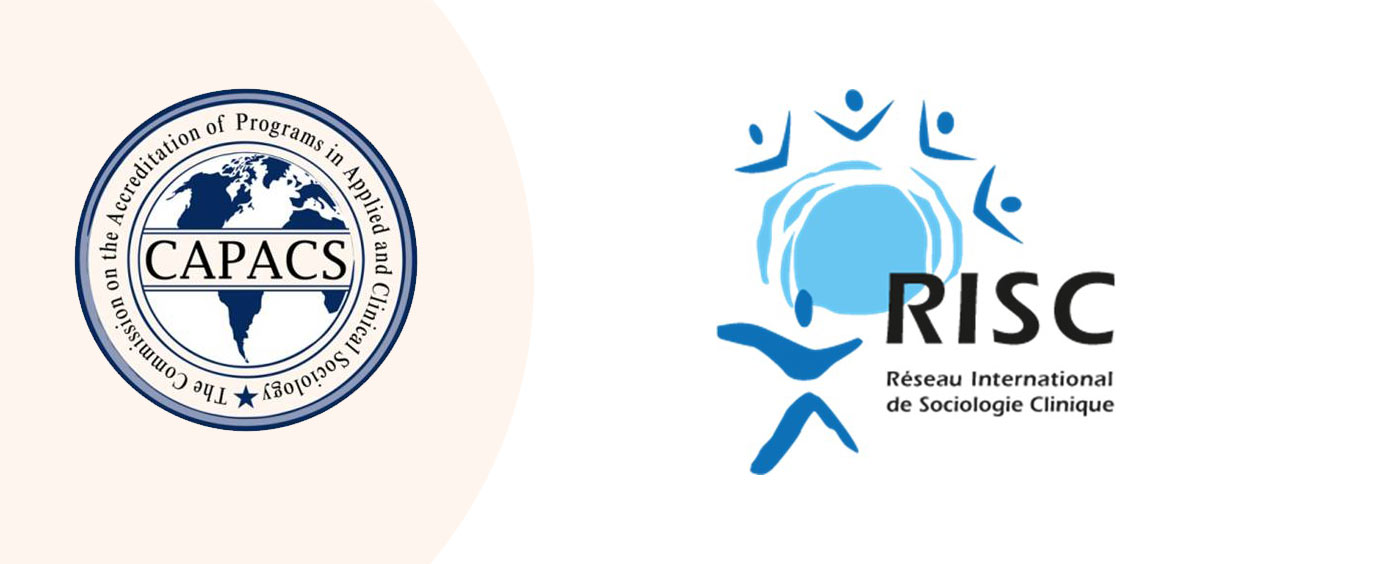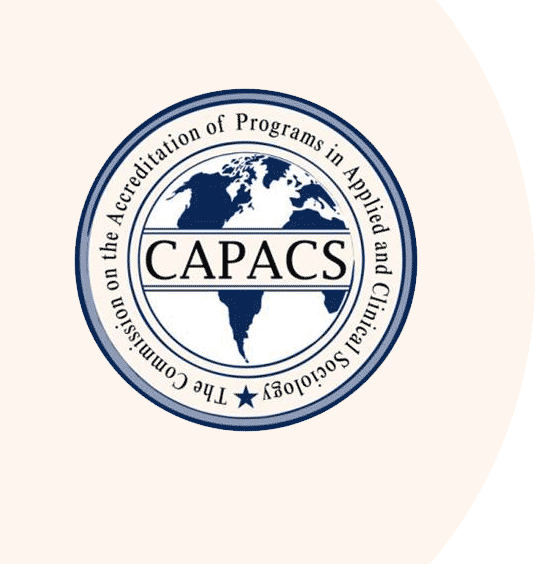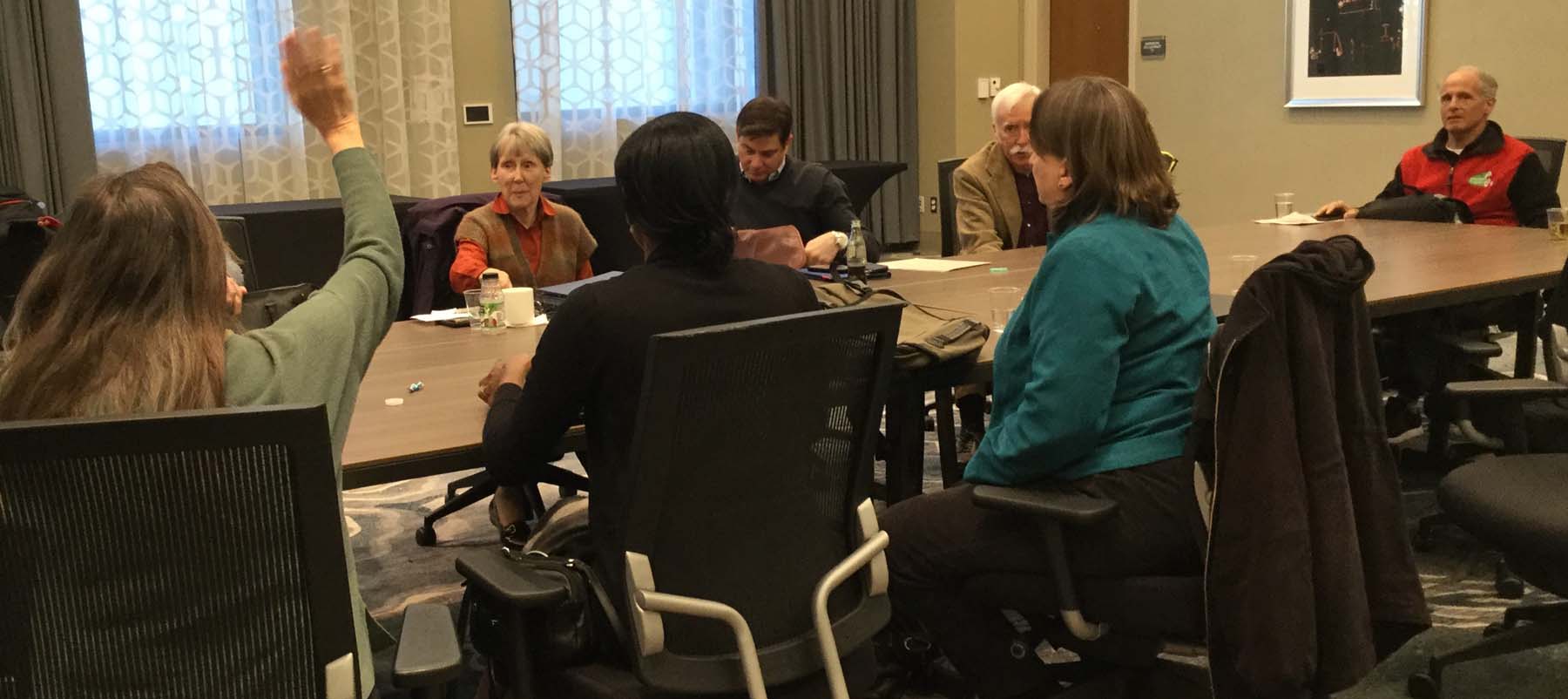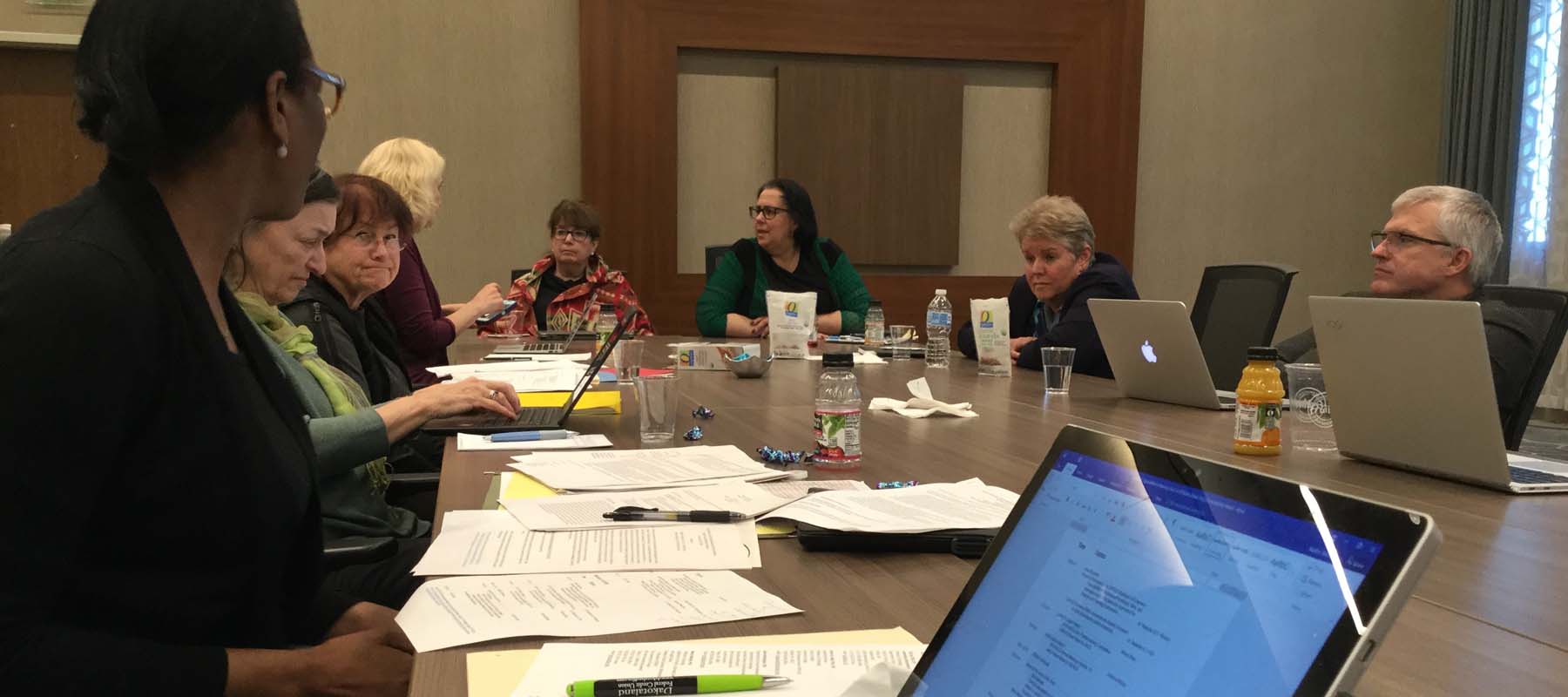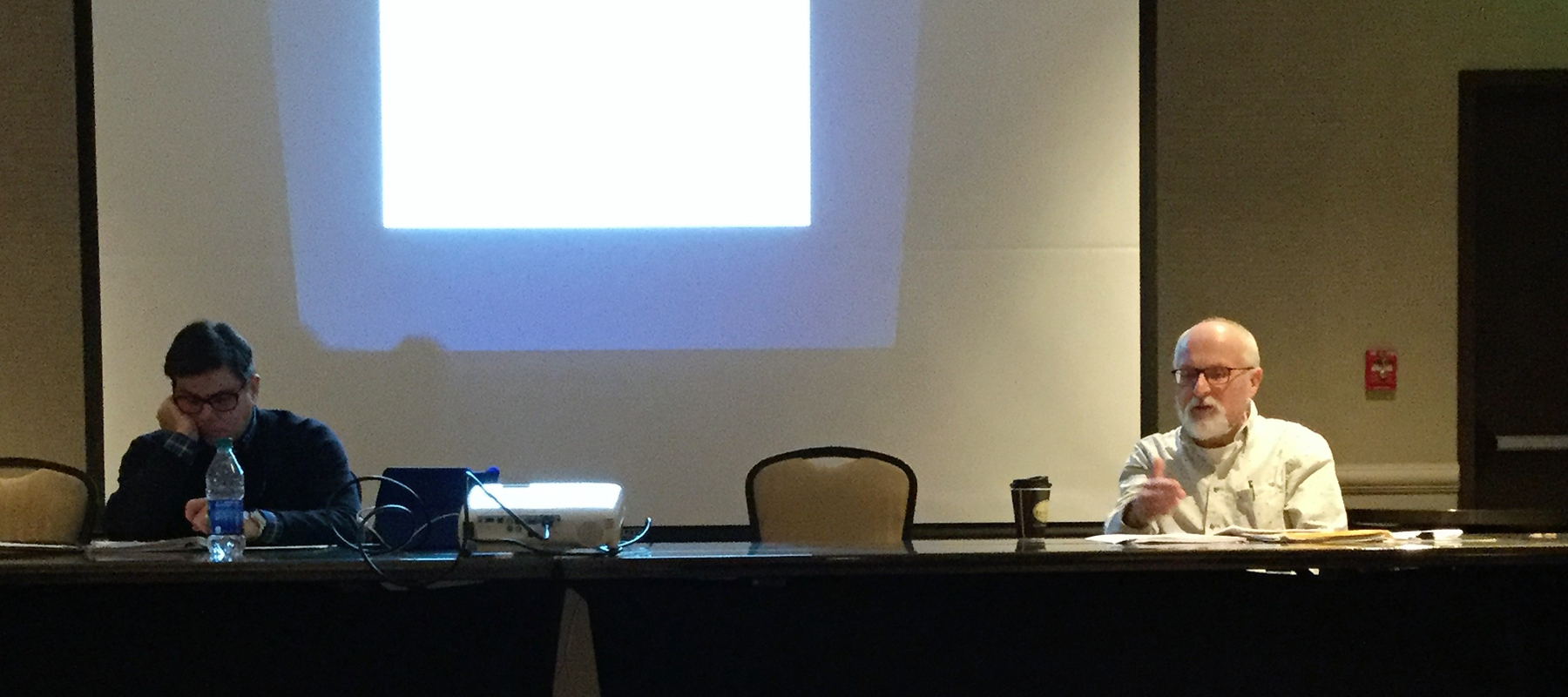About Accreditation
CAPACS accreditation standards are based on learning outcomes that integrate sociological theory, knowledge, methods, skills and professional orientation and ethics. In addition, students must have a meaningful practice experience, such as a supervised internship, practicum, or fieldwork. These requirements are designed to strengthen programs, improve career preparation for students, and employment opportunities for graduates.
Accreditation is a type of periodic program review. An accredited program should have adequate administrative structures and resources to support teaching, research and experiential learning for students. Accreditation helps to ensure that programs are adequately funded and staffed.
The accreditation process is based upon a program self-study and site visit. The Commission publishes its Standards and Guidelines for preparing the self-study report for programs in applied sociology, clinical sociology, public sociology, translational sociology, forensic sociology, and rural sociology. These documents are offered at the bachelor's, master's, and doctoral degree levels and can be accessed and downloaded on the Documents web page on the CAPACS website.
For more information on CAPACS Accreditation, please see the article by Dr. Michael Fleischer and Dr. Norma Winston, "Entry on Accreditation for the Dictionary of Clinical Sociology", Journal of Applied Social Sciences 12 (March 2018) 1: 12-16. Reprint of "Accréditation," in Vandevelde-Rougale Agnés & Pascal Fugier (eds.), Dictionnaire de sociologie clinique, Toulouse, ERES.
Accredited Programs: Undergraduate
CAPACS Priorities
CAPACS recognizes that sociology graduates at all degree levels pursue careers in applied, clinical, and public settings in addition to academic or pure research settings. Accordingly, CAPACS accreditation is the resource that Sociology departments use to assure the public that their students complete high quality programs that meet the needs of graduates and society-at-large. The Commission's priorities are to:
- Accredit programs in sociological practice (applied, clinical, public, translational, forensic, and rural sociology) in higher education sociology departments as well as in interdisciplinary and multidisciplinary departments, units, centers, and institutions.
- Advocate for Sociology in the areas of occupational certification and licensing.
- Disseminate program models and resources to departments and institutions that are interested in developing practice programs in applied sociology, clinical sociology, public sociology, translational sociology, forensic sociology, and rural sociology.











